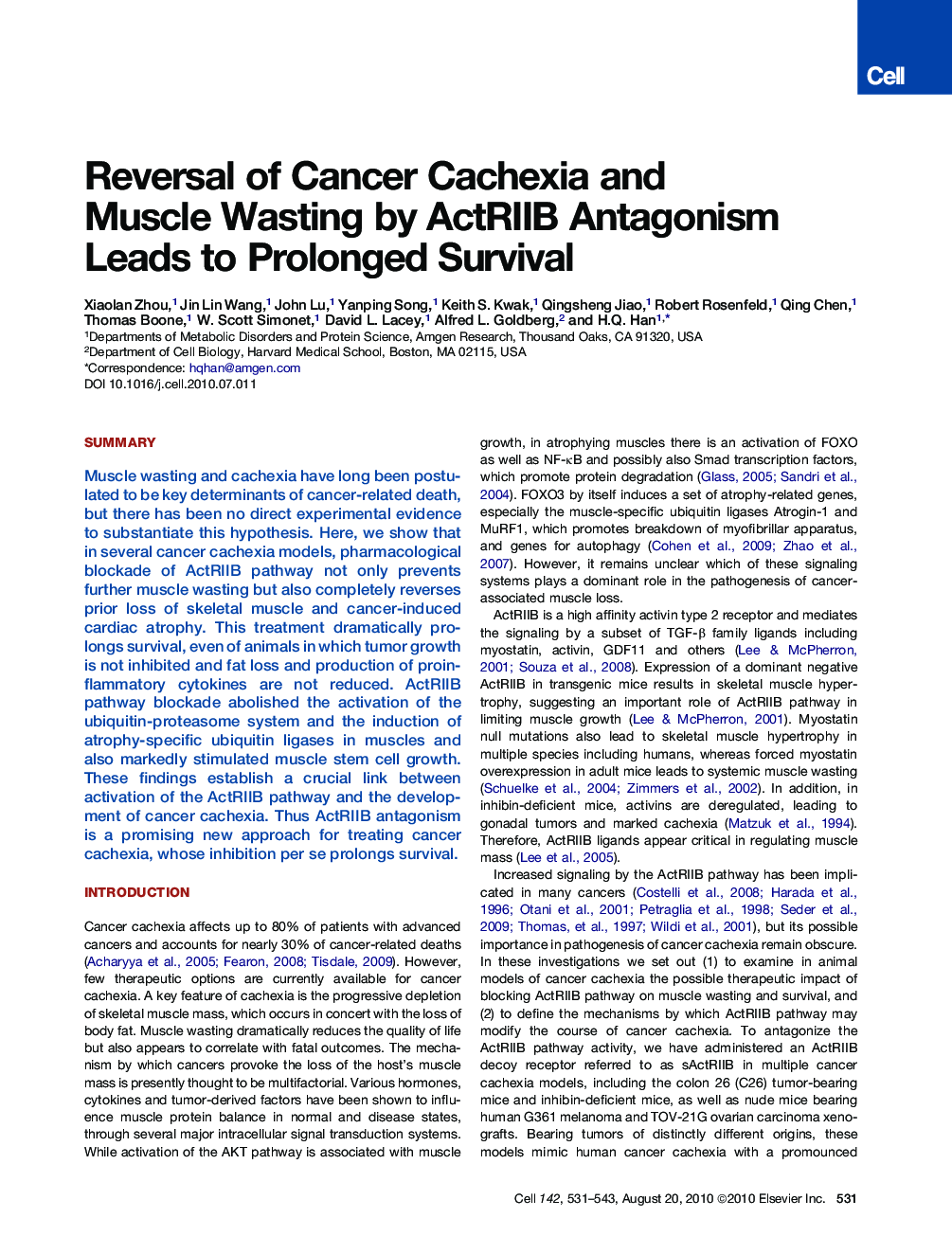| Article ID | Journal | Published Year | Pages | File Type |
|---|---|---|---|---|
| 2036766 | Cell | 2010 | 13 Pages |
SummaryMuscle wasting and cachexia have long been postulated to be key determinants of cancer-related death, but there has been no direct experimental evidence to substantiate this hypothesis. Here, we show that in several cancer cachexia models, pharmacological blockade of ActRIIB pathway not only prevents further muscle wasting but also completely reverses prior loss of skeletal muscle and cancer-induced cardiac atrophy. This treatment dramatically prolongs survival, even of animals in which tumor growth is not inhibited and fat loss and production of proinflammatory cytokines are not reduced. ActRIIB pathway blockade abolished the activation of the ubiquitin-proteasome system and the induction of atrophy-specific ubiquitin ligases in muscles and also markedly stimulated muscle stem cell growth. These findings establish a crucial link between activation of the ActRIIB pathway and the development of cancer cachexia. Thus ActRIIB antagonism is a promising new approach for treating cancer cachexia, whose inhibition per se prolongs survival.PaperClip To listen to this audio, enable JavaScript on your browser. However, you can download and play the audio by clicking on the icon belowHelp with MP3 filesOptionsDownload audio (2690 K)
Graphical AbstractFigure optionsDownload full-size imageDownload high-quality image (170 K)Download as PowerPoint slideHighlights► ActRIIB blockade reverses cancer-induced muscle loss, cardiac atrophy, and anorexia ► Reversal of cancer cachexia extends lifespan even without reducing tumor growth ► ActRIIB antagonism suppresses ubiquitin-proteasome system activity in skeletal muscle ► ActRIIB antagonism stimulates satellite cell proliferation and muscle regeneration
